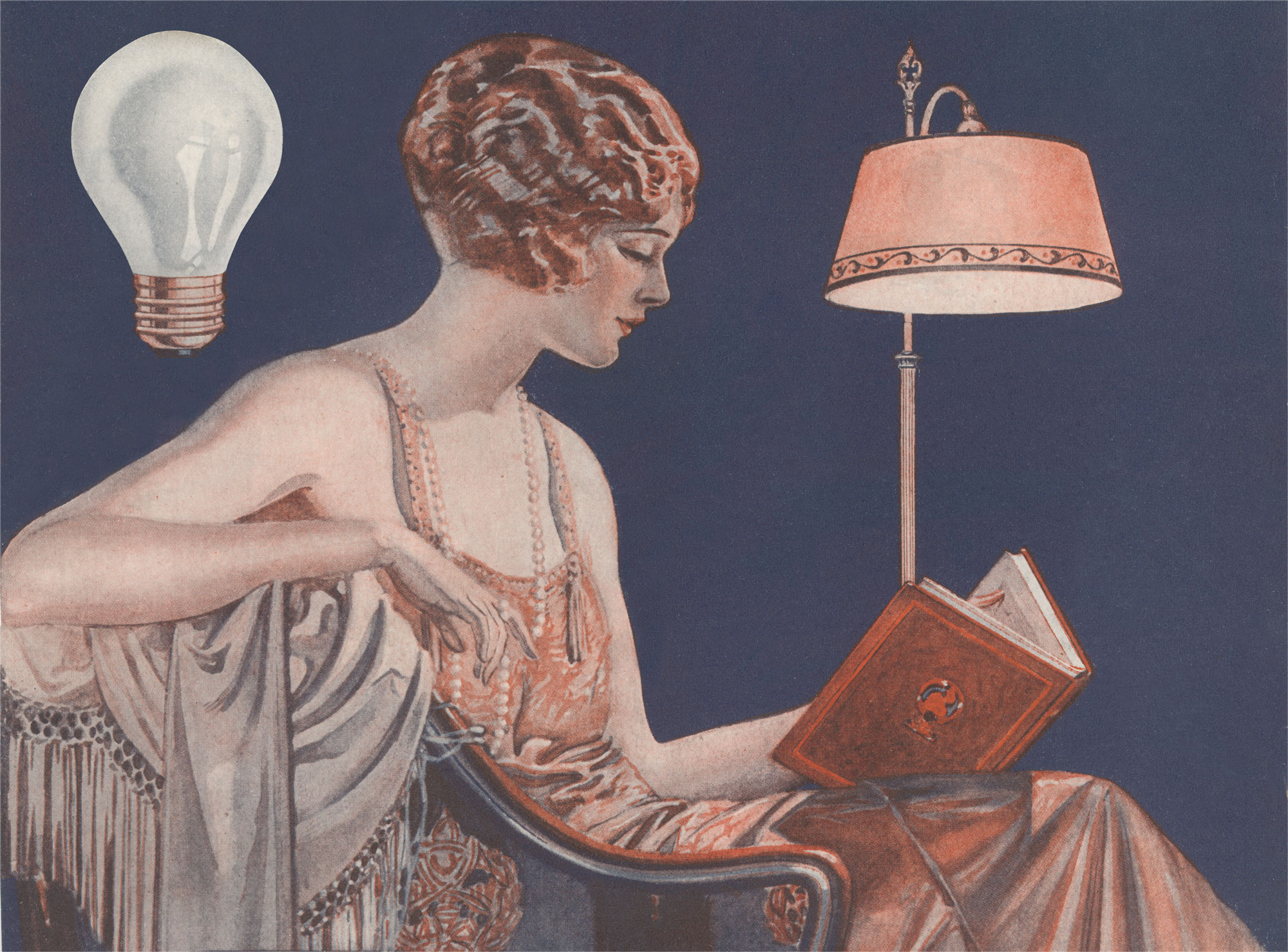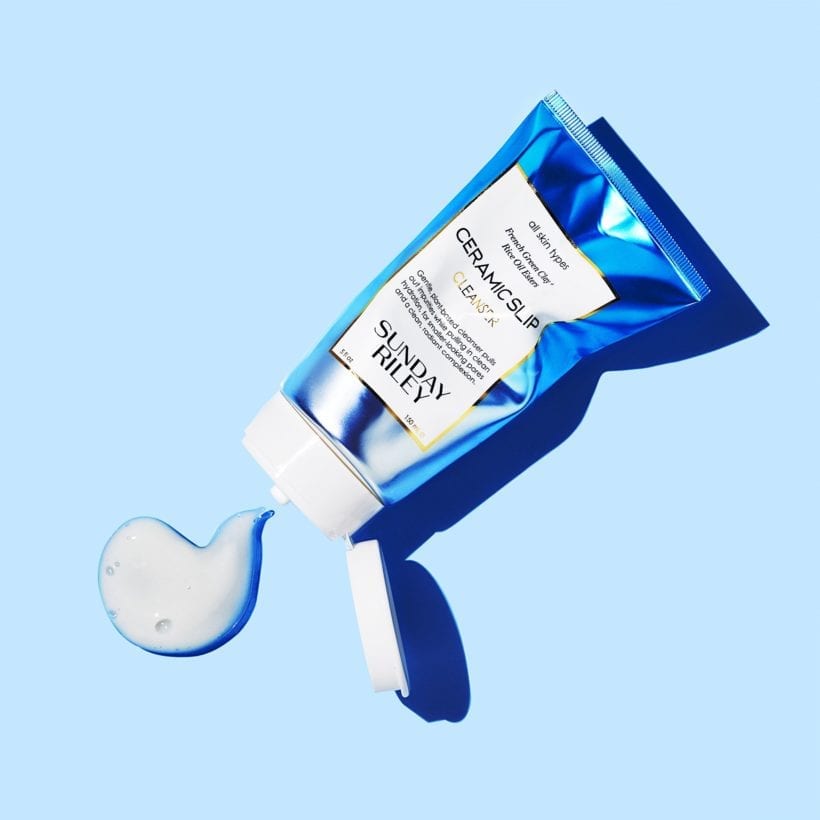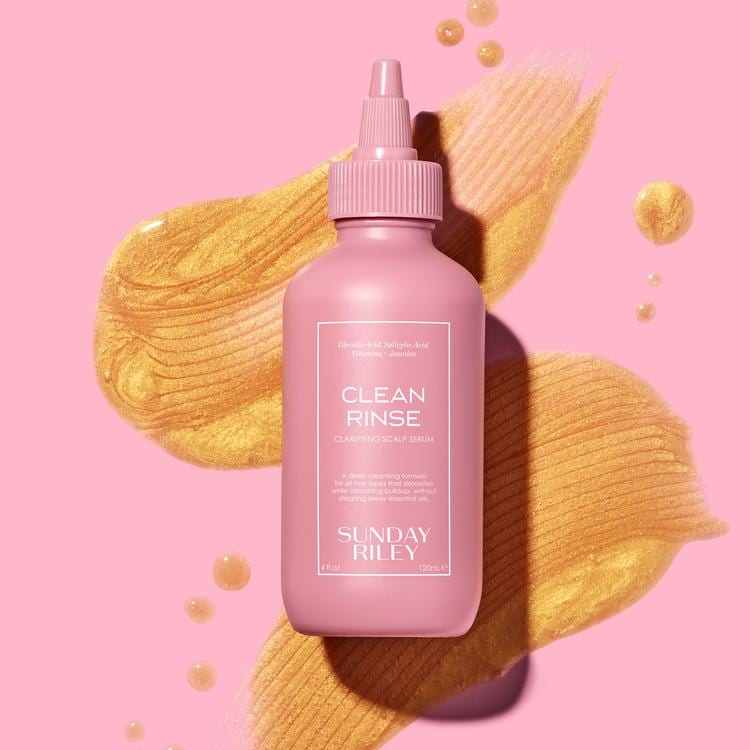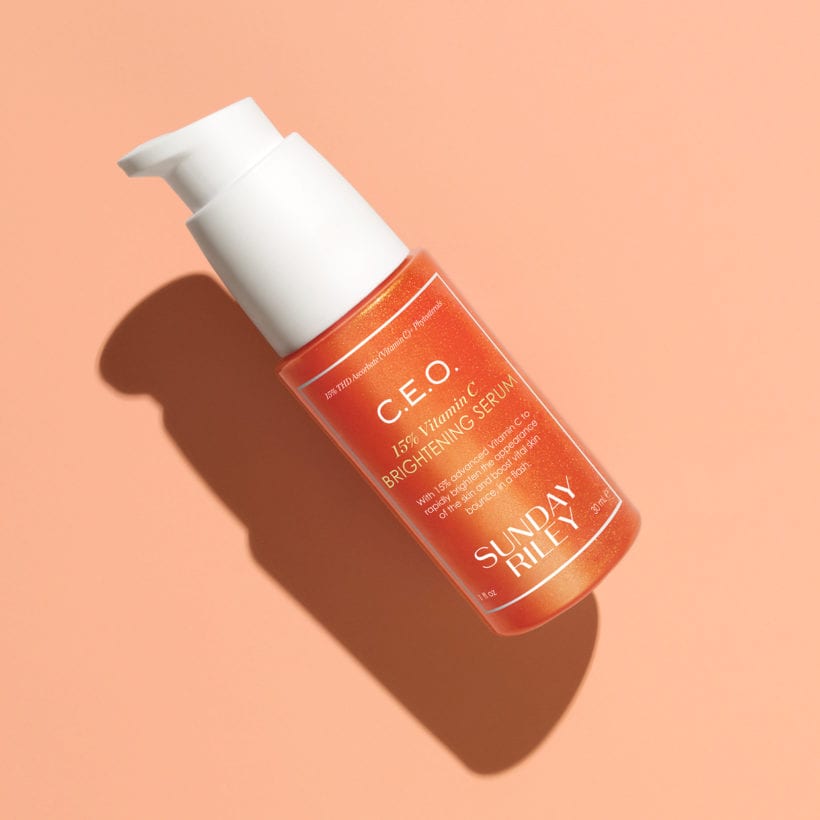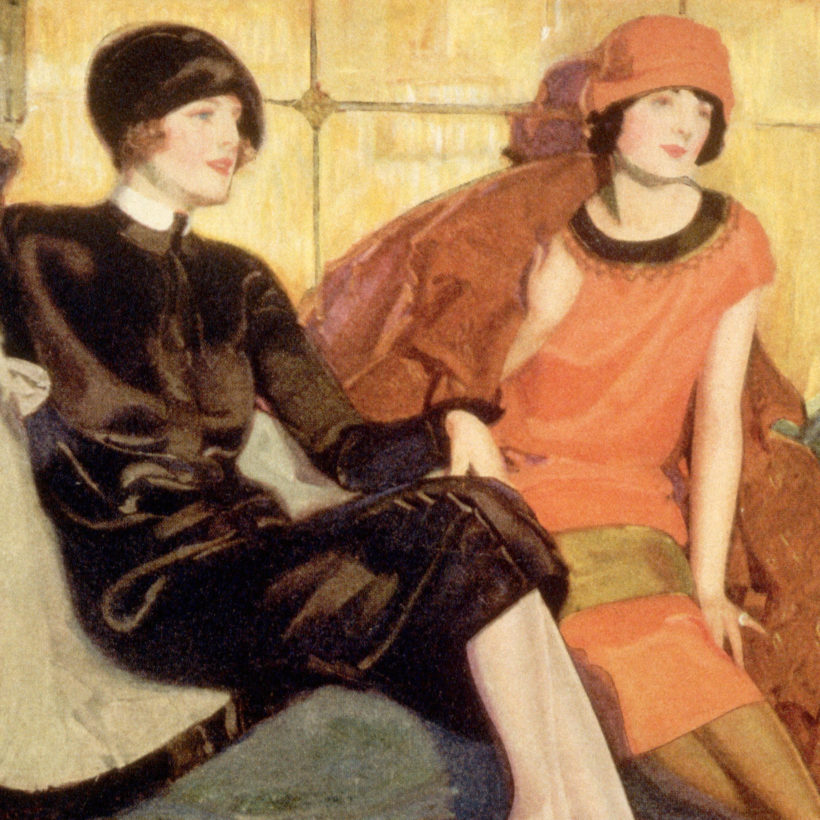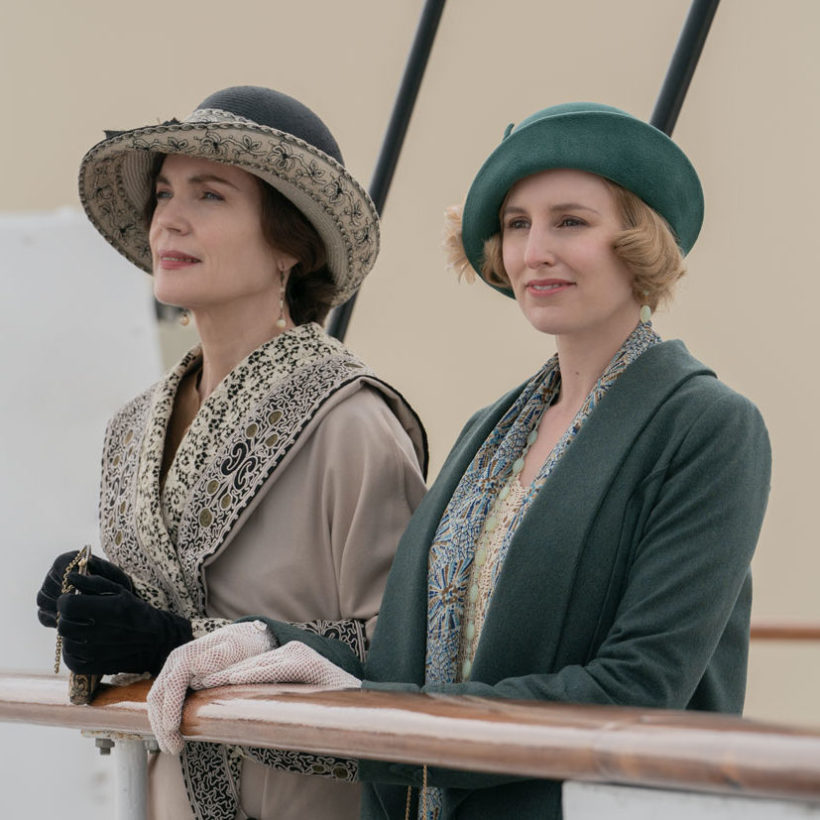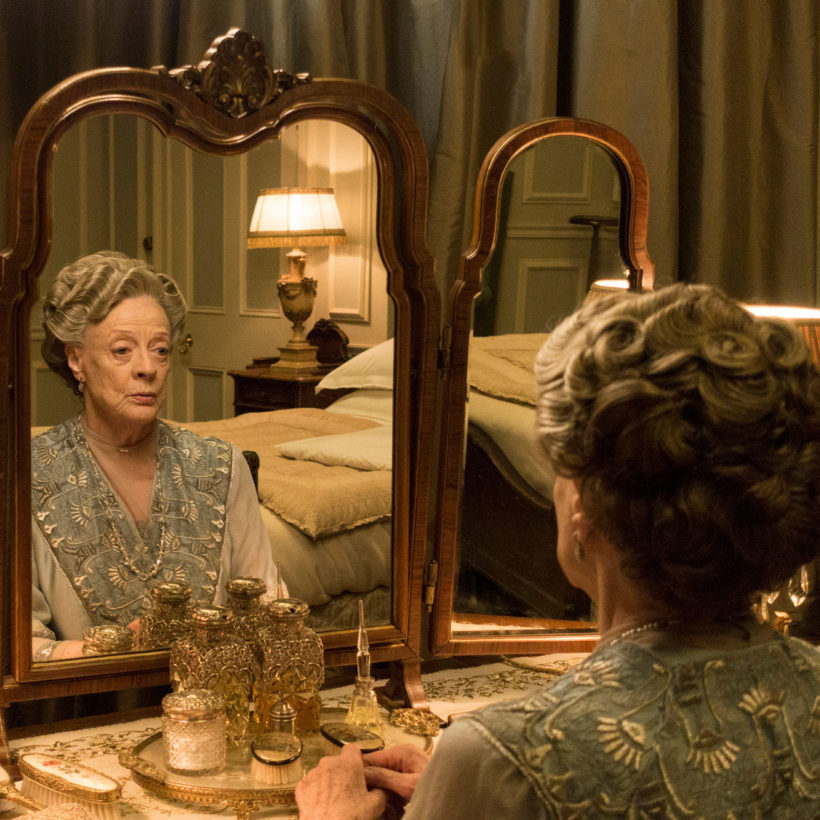While rummaging through the attic of my 101-year-old house, I recently discovered pristine, vintage lifestyle magazines from 1922-23 that must have been left behind by my home’s original owner. As a former magazine editor, I couldn’t wait to zero in on the beauty advice from the 1920s, especially since Sunday Riley HQ has been buzzing in the past few weeks with the launch of our Downton Abbey: Wake Up With Me kit based on the new movie (in theaters now!) that’s also set in the roaring twenties.
Read on to see which beauty advice has held up in the past 100 years — you might be surprised at how many beauty lessons we still use today.
“Know the Joy of a Smooth, Healthy Skin”
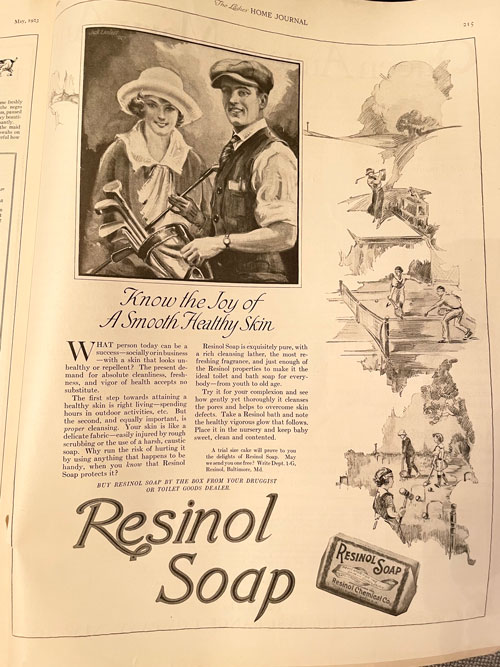
Advertisement for Resinol Soap
“The first step towards attaining a healthy skin is right living — spending hours in outdoor activities, etc. But the second, and equally important is proper cleansing. Your skin is like a delicate fabric — easily injured by rough scrubbing or the use of a harsh, caustic soap.”
The ingredient resinol, was developed in the late 19th century to treat different skin concerns from chafed, dry, or cracked skin to relieve minor burns and itching from poisonous plants like ivy and oak. Resinol was mostly petroleum jelly and a mix of calamine, zinc, and lanolin. In cleanser form, it claimed to soothe and heal skin, blast pimples, and leave your complexion velvety. Though these days, our facial cleanser ingredients are more sophisticated (think: green clay, bentonite, white kaolin, plus rice and olive oil esters found in Sunday Riley Ceramic Slip Cleanser in the Wake Up With Me kit), the advice remains the same: The right gentle cleanser is the foundation to healthy skin.
“Despite Regular Shampooing, Is Your Hair Thin or Lifeless?”
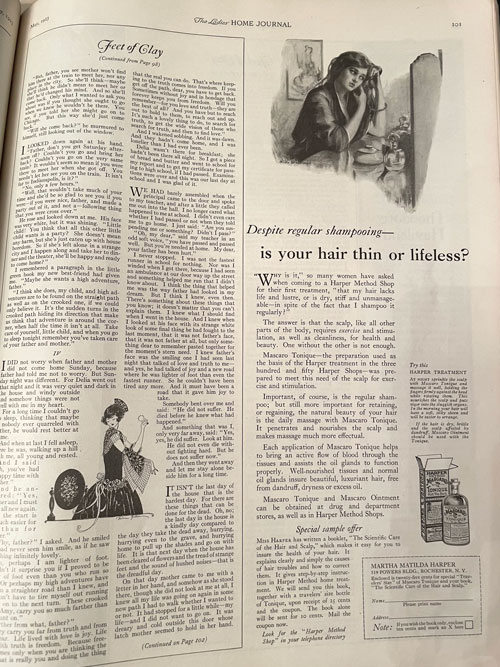
Advertisement for Harper Method Mascaro Tonique
“Why is it that… my hair lacks life and luster, or is dry, stiff, and unmanageable — in spite of the fact that I shampoo it regularly? The answer is that the scalp… requires exercise and stimulations, as well as cleanliness, for health and beauty.”
Created by Martha Matilda Harper, the working mother and pioneer for women (historians liken her to social reformers like Susan B. Anthony), this hair tonic was also known as the “Harper Method Tonique,” which was a top hair care product in her chain of beauty parlors across America. Combined with a scalp massage, it promised to retain or regain your hair’s natural beauty while removing dandruff and excess oil. Today, the benefits of scalp massage are even more well-known, from reducing stress to promoting hair growth to relieving headaches. Back then, simply using your fingers did the trick, but now we have many fancy devices that will massage your scalp for you. While the exact makeup of Mascaro Tonique is unclear, it sounded like it had exfoliating properties, not unlike Sunday Riley Clean Rinse. Even 100 years ago, experts knew the key to healthy hair was a healthy scalp.
“A Twin Complexion Treatment: Protection by Day; Restoration by Night”
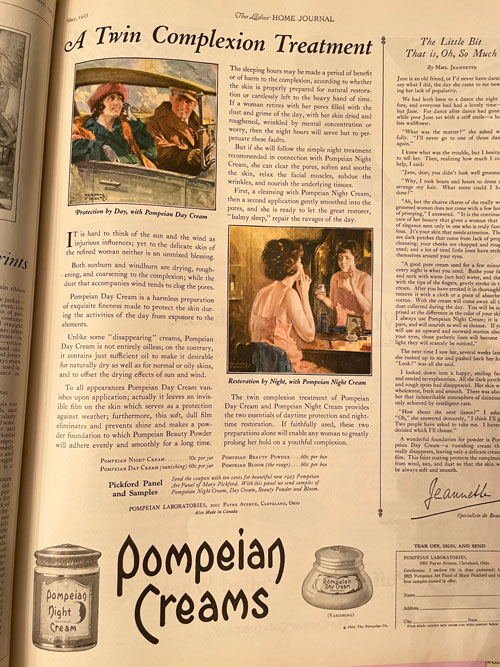
Advertisement for Pompeian Creams
“It is hard to think of the sun, and the wind as injurious influences, yet to the delicate skin of the refined woman, neither is an unmixed blessing. Both sunburn and windburn are drying, roughening, and coarsening to the complexion, while the dust that accompanies wind tends to clog the pores.”
Not much about the basics of face moisturizer has changed since this ad for Pompeian Creams. You want to apply once in the morning and a night to help get skin soft, supple, and glowing. These days we call the ‘influences’ of the sun and wind a part of what causes environmental stress, and the proper anti-pollution skincare routine also includes daily application of sunscreen and ample vitamin C (à la C.E.O. 15% Vitamin C Brighten Serum found in the Wake Up With Me kit). But, the info found in this advertisement isn’t wrong — hydrated skin strengthens your skin’s microbiome. Pharmacist Fred W. Stecher created the Pompeian Massage Cream in 1901. By 1910, it became the best-selling cream in the U.S. He expanded the line to include the Pompeian Day Cream to soften the skin during the day and the Pompeian Night Cream to “bring beauty while you sleep.” It also could be used as a cleansing cold cream to wipe off the day.
“How Well Have You Trained Your Hair?”

Advertisement for Pro-phy-lac-tic Pene-e-tra-tor Brushes
“Daily brushing does two important things for your hair: It trains the hair to conform to your preferred coiffure. It massages the scalp, keeping the hair glossy and in good condition. The long, springy, stiff bristles penetrate clear through the hair — instead of just skimming over the surface. They remove the dust and straighten the tangles. They stimulate the scalp, yet do not bruise it. The natural food for the hair is distributed properly and your hair is given a chance to grow.”
The main benefits of hair brushing haven’t changed: remove tangles, stat. But I appreciate that this ad brings the importance of brushing home by reinforcing that it also stimulates your scalp and distributes the natural oils of your hair to encourage healthier hair growth. Fast-forward a century, and we realize that though brushing is important, different hair brushes cater to different hair types and textures, and I’m left curious to see how this hairbrush would’ve held up in today’s era. Though The Pro-Phy-Lac-Tic Brush Company’s claim to fame was their toothbrush, the Massachusetts-based brand later expanded its lineup to hair brushes and even toilet brushes.
We only recommend products we have independently researched, tested, and loved. If you purchase a product found through our links, Sunday Edit may earn an affiliate commission.
